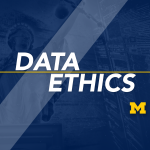Welcome to the Advanced Linear Models for Data Science Class 2: Statistical Linear Models. This class is an introduction to least squares from a linear algebraic and mathematical perspective. Before beginning the class make sure that you have the following: - A basic understanding of linear algebra and multivariate calculus. - A basic understanding of statistics and … [Read more...] about Advanced Linear Models for Data Science 2: Statistical Linear Models
Data Science
Foundations of Data Science: K-Means Clustering in Python
Organisations all around the world are using data to predict behaviours and extract valuable real-world insights to inform decisions. Managing and analysing big data has become an essential part of modern finance, retail, marketing, social science, development and research, medicine and government. This MOOC, designed by an academic team from Goldsmiths, University of London, … [Read more...] about Foundations of Data Science: K-Means Clustering in Python
Data Science Ethics
What are the ethical considerations regarding the privacy and control of consumer information and big data, especially in the aftermath of recent large-scale data breaches? This course provides a framework to analyze these concerns as you examine the ethical and privacy implications of collecting and managing big data. Explore the broader impact of the data science field on … [Read more...] about Data Science Ethics
An Intuitive Introduction to Probability
This course will provide you with a basic, intuitive and practical introduction into Probability Theory. You will be able to learn how to apply Probability Theory in different scenarios and you will earn a "toolbox" of methods to deal with uncertainty in your daily life. The course is split in 5 modules. In each module you will first have an easy introduction into the topic, … [Read more...] about An Intuitive Introduction to Probability
Inferential Statistics
Inferential statistics are concerned with making inferences based on relations found in the sample, to relations in the population. Inferential statistics help us decide, for example, whether the differences between groups that we see in our data are strong enough to provide support for our hypothesis that group differences exist in general, in the entire population. We will … [Read more...] about Inferential Statistics






